By Sean O'SheaWhen it comes to working with our dog's behavior issues, we are often told we simply need to "be" calm, assertive, relaxed, and confident. That that state of mind will change our dogs and us.Honestly, I think it works in reverse. A calm, confident, relaxed, and assertive attitude/mindset is the natural byproduct of having tools, strategies, and mechanics in place that work.When things work, it's easy to step into a different mindset.Yes we can decide/cultivate/manifest/manufacture some degree of determination, relaxation and confidence when working with our dog's problem behavior as a baseline starting point - and that's a great mindset to start with - but the real stuff, the stuff that is palpable, that changes the way your dog feels about you and your relationship - and hence changes your dog's behavior - comes about through the confidence we get when we know what we're doing works. When we use tools and strategies that leverage our abilities, that allow us to feel in control of our dogs and ourselves, we begin to truly transform. (This is one of the many reasons we utilize prong collars and e-collars in all our work; because they help everyday people to be far more successful, even with serious problem behaviors)Great training doesn't make it harder for owners and dogs to succeed. Great training makes it easier. Great training empowers everyday people, people who don't live 24/7 in dog world, people who aren't dog trainers, people who very likely don't have 8 hours to devote every day to dog training, to be successful.Real confidence comes not from the ether, not from attempting to manufacture that which doesn't yet exist, it comes from success.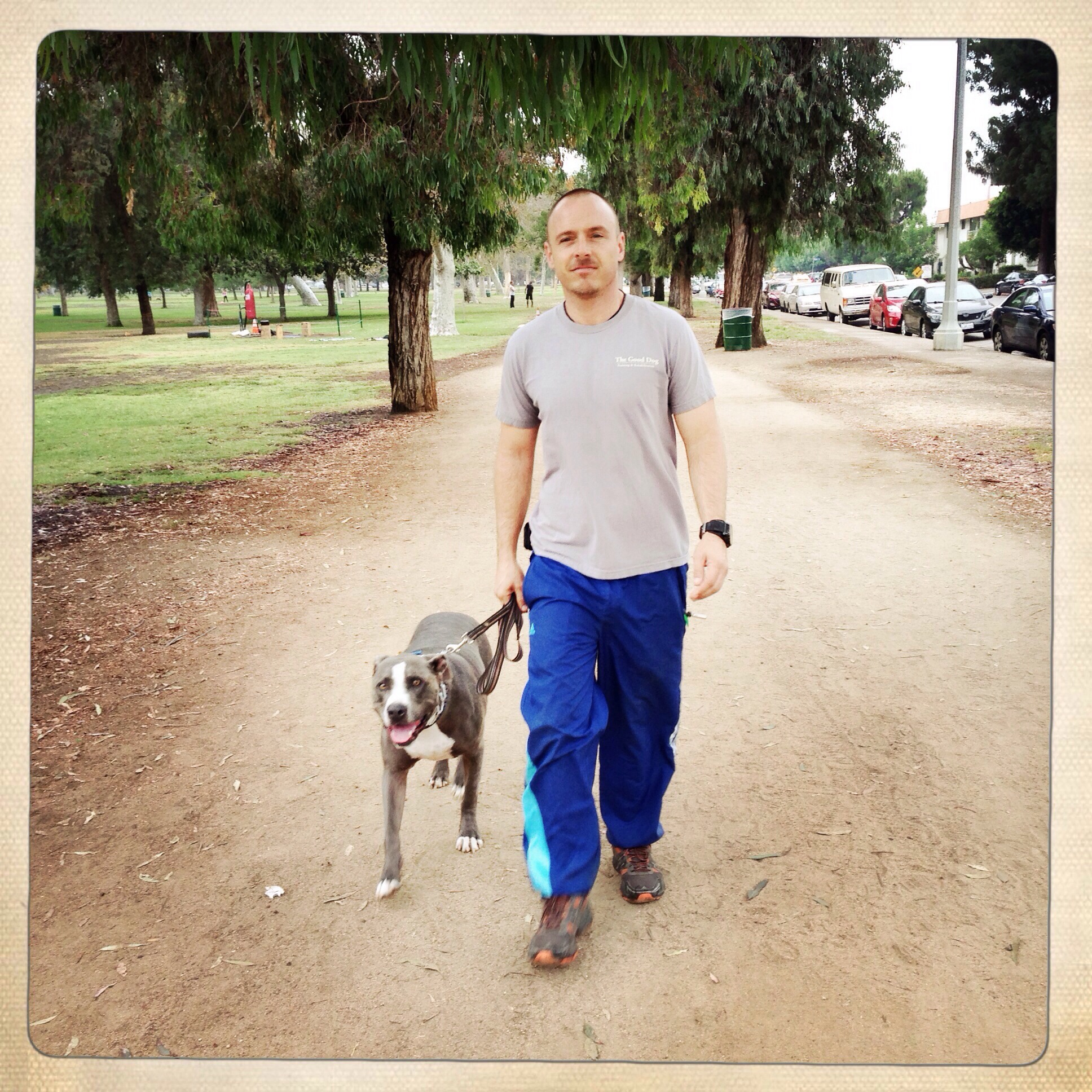 Visit our website at - www.thegooddog.netFor more dog training tips, info, and for help with questions or issues, connect with me on Facebook (The Good Dog Training And Rehabilitation) and YouTube (TheGoodDogTraining)
Visit our website at - www.thegooddog.netFor more dog training tips, info, and for help with questions or issues, connect with me on Facebook (The Good Dog Training And Rehabilitation) and YouTube (TheGoodDogTraining)
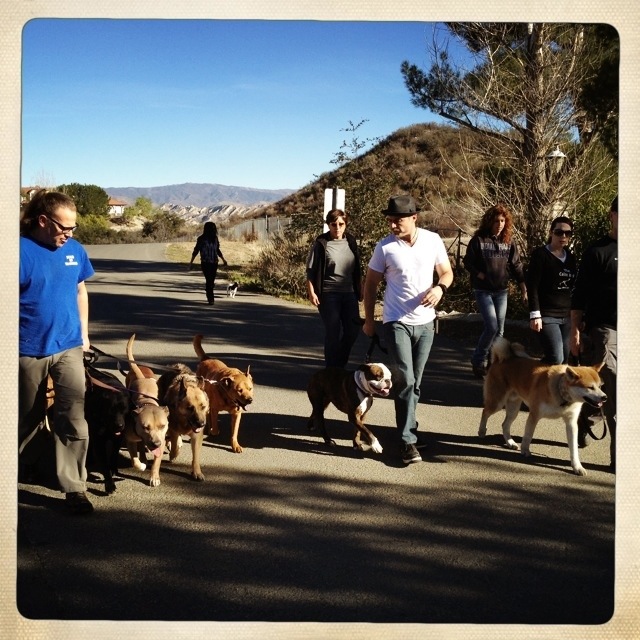 By Sean O'SheaWhen it comes to our dogs, we always have a choice. The choice to see problems or to see opportunities.Instead of simply being upset, annoyed, frazzled, or frustrated with your dog's behavior, ask yourself if there's a gift for yourself in the problem.Are your dog's issues offering you an opportunity to challenge yourself, to grow, to become more? More confident, more emotionally balanced, less anxious, less in a hurry, quicker to problem solve than to anger?Are your dog's issues exposing issues for yourself that need work?It's a very rare appointment in which the dog I'm working with isn't reacting from the human's issues and/or wouldn't benefit from the human growing, challenging, progressing, developing themselves into more fully balanced, healthy versions of themselves.If you only look for the problem your dog is offering, that is all you'll find. But if you'll take a deeper, more honest, and vulnerable look, you'll find the gift he is offering as well.Click Here to visit Sean's website.
By Sean O'SheaWhen it comes to our dogs, we always have a choice. The choice to see problems or to see opportunities.Instead of simply being upset, annoyed, frazzled, or frustrated with your dog's behavior, ask yourself if there's a gift for yourself in the problem.Are your dog's issues offering you an opportunity to challenge yourself, to grow, to become more? More confident, more emotionally balanced, less anxious, less in a hurry, quicker to problem solve than to anger?Are your dog's issues exposing issues for yourself that need work?It's a very rare appointment in which the dog I'm working with isn't reacting from the human's issues and/or wouldn't benefit from the human growing, challenging, progressing, developing themselves into more fully balanced, healthy versions of themselves.If you only look for the problem your dog is offering, that is all you'll find. But if you'll take a deeper, more honest, and vulnerable look, you'll find the gift he is offering as well.Click Here to visit Sean's website.
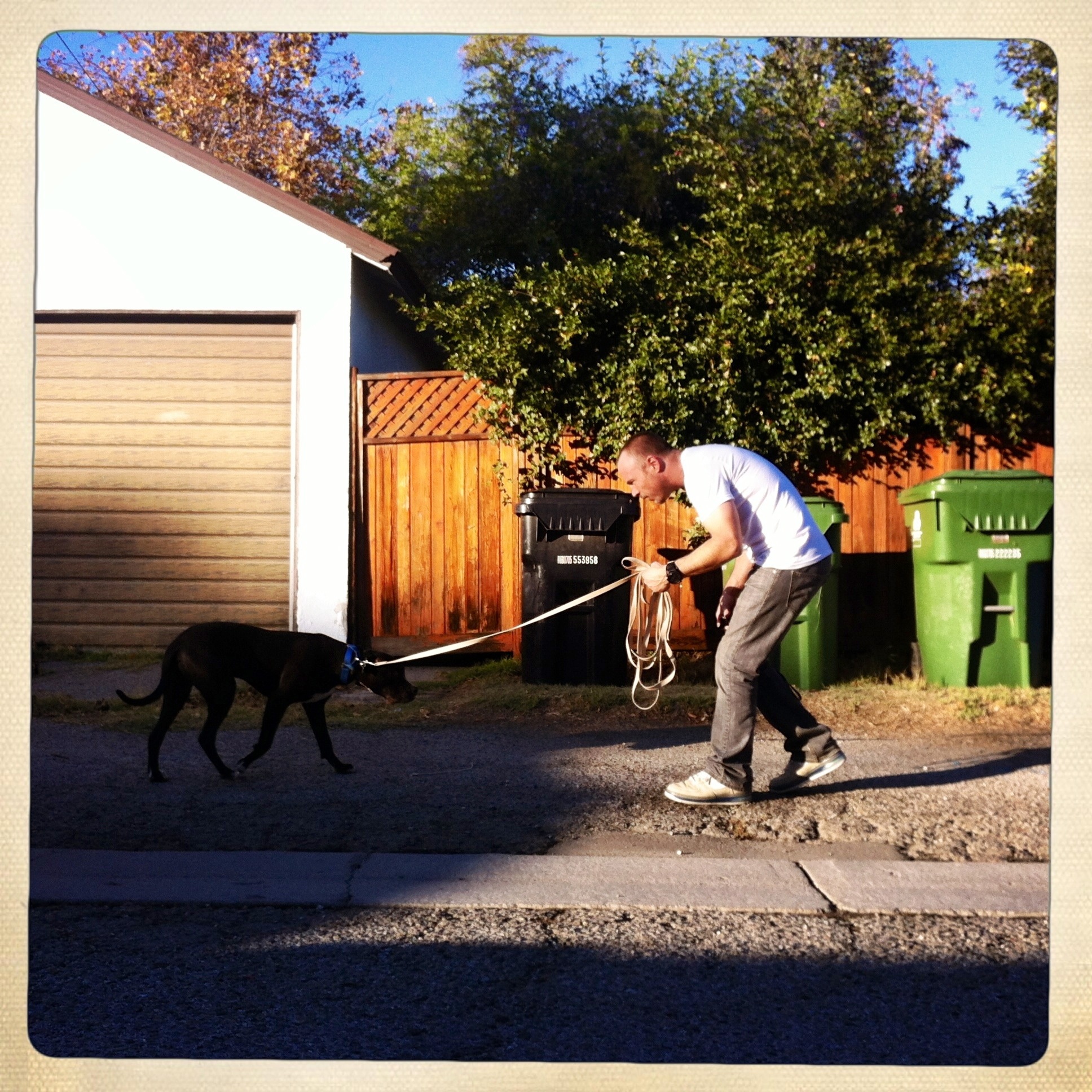 By Sean O'Shea from The Good DogRemember folks, dogs always do what 'works' for them. If pulling on the leash works to get you to walk faster or gets them to a desired tree, they will do it. If barking from the crate works to get the crate door opened and them out, they will do it. If acting the fool when you pull the leash out works to get the leash put on, they will do it. If barking and lunging at other dogs on the walk works to make the other dog go away (the dog's perception) or is just a bunch of fun, they will do it. If jumping up on you works to get attention (even negative attention) they will do it. If pulling you out the front door works to get the walk started, they will do it. If barking at the back door works to get them inside, they will do it. If whining works to get them petted or soothed, they will do it. If chewing/mouthing on your pant leg or your hands works to get you to engage with your dog (what he's looking for), they will do it. If staring or growling at you works to cause you to move away from your dog's food bowl, crate, toy, bed etc, he will do it.And they will do all of these things more and more intensely, and more frequently, the more it works for them.When we respond to our dog's negative behavior in a way that ultimately gives the dog what he wants, we have trained our dog (and he has trained us) to create the reality he desires...which might not be the reality you desire. :)Our job, as our dog's leader and guide is to be sure that we only encourage the behaviors we like - what 'works' for us and our lifestyle - and discourage that which doesn't 'work' for us.The best way to achieve this is to ignore very mild behavior totally and completely, correct more intense behavior you don't like immediately, and to actively train your dog that patience, waiting, calmness, respect, and courteousness gets them everything. It's what 'works'!Dogs, while being some of the most awesome creatures around, are also awesome opportunists! Left to their own devices, they will create a world for themselves (and for you) that is exactly to their liking. It's up to you to pick which reality 'works' for you, yours or your dog's.(If your dog's behavior is dangerous or frightening, or if you are unsure about how to proceed, please do not attempt to correct or train him on your own. You should seek the help of a trained professional who, if qualified should be able to help you sort these issues out.)
By Sean O'Shea from The Good DogRemember folks, dogs always do what 'works' for them. If pulling on the leash works to get you to walk faster or gets them to a desired tree, they will do it. If barking from the crate works to get the crate door opened and them out, they will do it. If acting the fool when you pull the leash out works to get the leash put on, they will do it. If barking and lunging at other dogs on the walk works to make the other dog go away (the dog's perception) or is just a bunch of fun, they will do it. If jumping up on you works to get attention (even negative attention) they will do it. If pulling you out the front door works to get the walk started, they will do it. If barking at the back door works to get them inside, they will do it. If whining works to get them petted or soothed, they will do it. If chewing/mouthing on your pant leg or your hands works to get you to engage with your dog (what he's looking for), they will do it. If staring or growling at you works to cause you to move away from your dog's food bowl, crate, toy, bed etc, he will do it.And they will do all of these things more and more intensely, and more frequently, the more it works for them.When we respond to our dog's negative behavior in a way that ultimately gives the dog what he wants, we have trained our dog (and he has trained us) to create the reality he desires...which might not be the reality you desire. :)Our job, as our dog's leader and guide is to be sure that we only encourage the behaviors we like - what 'works' for us and our lifestyle - and discourage that which doesn't 'work' for us.The best way to achieve this is to ignore very mild behavior totally and completely, correct more intense behavior you don't like immediately, and to actively train your dog that patience, waiting, calmness, respect, and courteousness gets them everything. It's what 'works'!Dogs, while being some of the most awesome creatures around, are also awesome opportunists! Left to their own devices, they will create a world for themselves (and for you) that is exactly to their liking. It's up to you to pick which reality 'works' for you, yours or your dog's.(If your dog's behavior is dangerous or frightening, or if you are unsure about how to proceed, please do not attempt to correct or train him on your own. You should seek the help of a trained professional who, if qualified should be able to help you sort these issues out.)
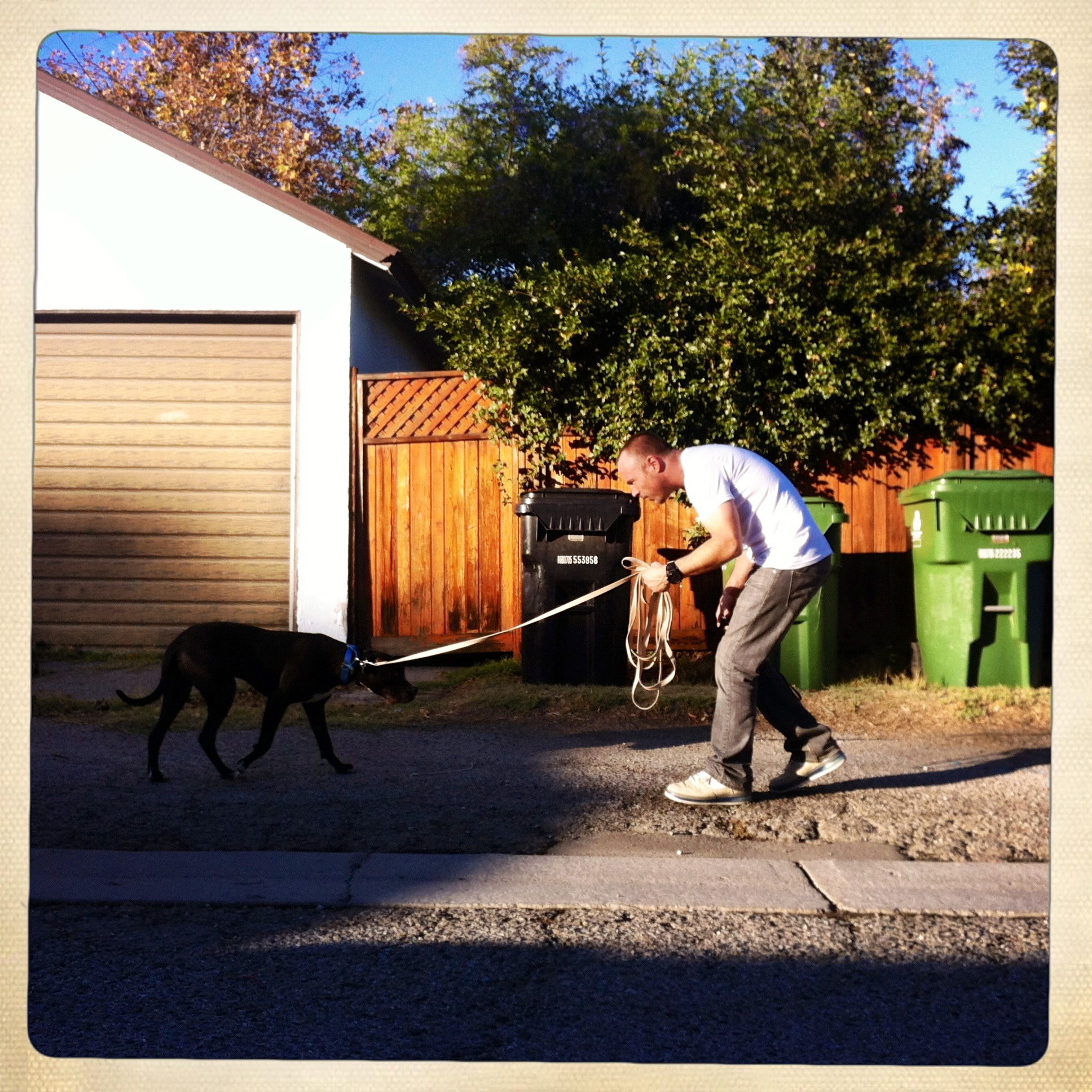 By Sean O'Shea - visit our website thegooddog.netYou don't start swinging the bat the day of the World Series. You don't throw your first Shot Put the day of the Olympics. You don't sit down at the piano for the first time the day of your recital at Lincoln Center.Of course all of these examples are silly, and no one in their right mind would actually contemplate them. BUT, as crazy as these examples are, this is exactly what I see so many dog owners do. And it's one of the biggest causes of failure in their attempts to train/rehab their dog. It's fascinating that something that we so intuitively understand in the human world (that being the necessity of using baby steps and constant preparation in order to achieve a bigger goal/accomplishment) regularly escapes us and frequently sabotages our attempts to train our dogs.We somehow believe that the dog with the maniacal door reaction (or even worse, an aggression issue) will respond to our frantic attempts to keep him in "place" the one day someone shows up at our door, rather than practicing, preparing, and conditioning him to respond appropriately, to respect, listen and defer to you for the 3 weeks preceding the visit.Or, we let our dog wander on the walk, smelling here and there, pulling us to and fro, teaching them ever so consistently that they need not respect or listen to us...and then our dog sees the little obnoxious dog from down the street and decides to not only bark, growl, froth, and spin, but also to share a bite on your leg for your trouble.In the dog world, these are all World Series moments, and to think you can simply suit up and knock it out of the park on game day, without having spent the necessary practice, preparation, and skill building time, is folly.If you're looking to train or rehab any serious behavior problem, be sure that you practice, prepare, and condition both you and your dog with massive repetition and small, incremental challenges long BEFORE game day. Much of our success with severe behavior issues comes from utilizing this simple formula.Remember, if you're going to rock the stadium, you gotta work through T-ball, little league, high school, college ball, and then finally, if you've worked your butt off, you graduate to the big leagues. And if you approach your dog training with the same mind-set, you can accomplish something just as amazing!
By Sean O'Shea - visit our website thegooddog.netYou don't start swinging the bat the day of the World Series. You don't throw your first Shot Put the day of the Olympics. You don't sit down at the piano for the first time the day of your recital at Lincoln Center.Of course all of these examples are silly, and no one in their right mind would actually contemplate them. BUT, as crazy as these examples are, this is exactly what I see so many dog owners do. And it's one of the biggest causes of failure in their attempts to train/rehab their dog. It's fascinating that something that we so intuitively understand in the human world (that being the necessity of using baby steps and constant preparation in order to achieve a bigger goal/accomplishment) regularly escapes us and frequently sabotages our attempts to train our dogs.We somehow believe that the dog with the maniacal door reaction (or even worse, an aggression issue) will respond to our frantic attempts to keep him in "place" the one day someone shows up at our door, rather than practicing, preparing, and conditioning him to respond appropriately, to respect, listen and defer to you for the 3 weeks preceding the visit.Or, we let our dog wander on the walk, smelling here and there, pulling us to and fro, teaching them ever so consistently that they need not respect or listen to us...and then our dog sees the little obnoxious dog from down the street and decides to not only bark, growl, froth, and spin, but also to share a bite on your leg for your trouble.In the dog world, these are all World Series moments, and to think you can simply suit up and knock it out of the park on game day, without having spent the necessary practice, preparation, and skill building time, is folly.If you're looking to train or rehab any serious behavior problem, be sure that you practice, prepare, and condition both you and your dog with massive repetition and small, incremental challenges long BEFORE game day. Much of our success with severe behavior issues comes from utilizing this simple formula.Remember, if you're going to rock the stadium, you gotta work through T-ball, little league, high school, college ball, and then finally, if you've worked your butt off, you graduate to the big leagues. And if you approach your dog training with the same mind-set, you can accomplish something just as amazing!
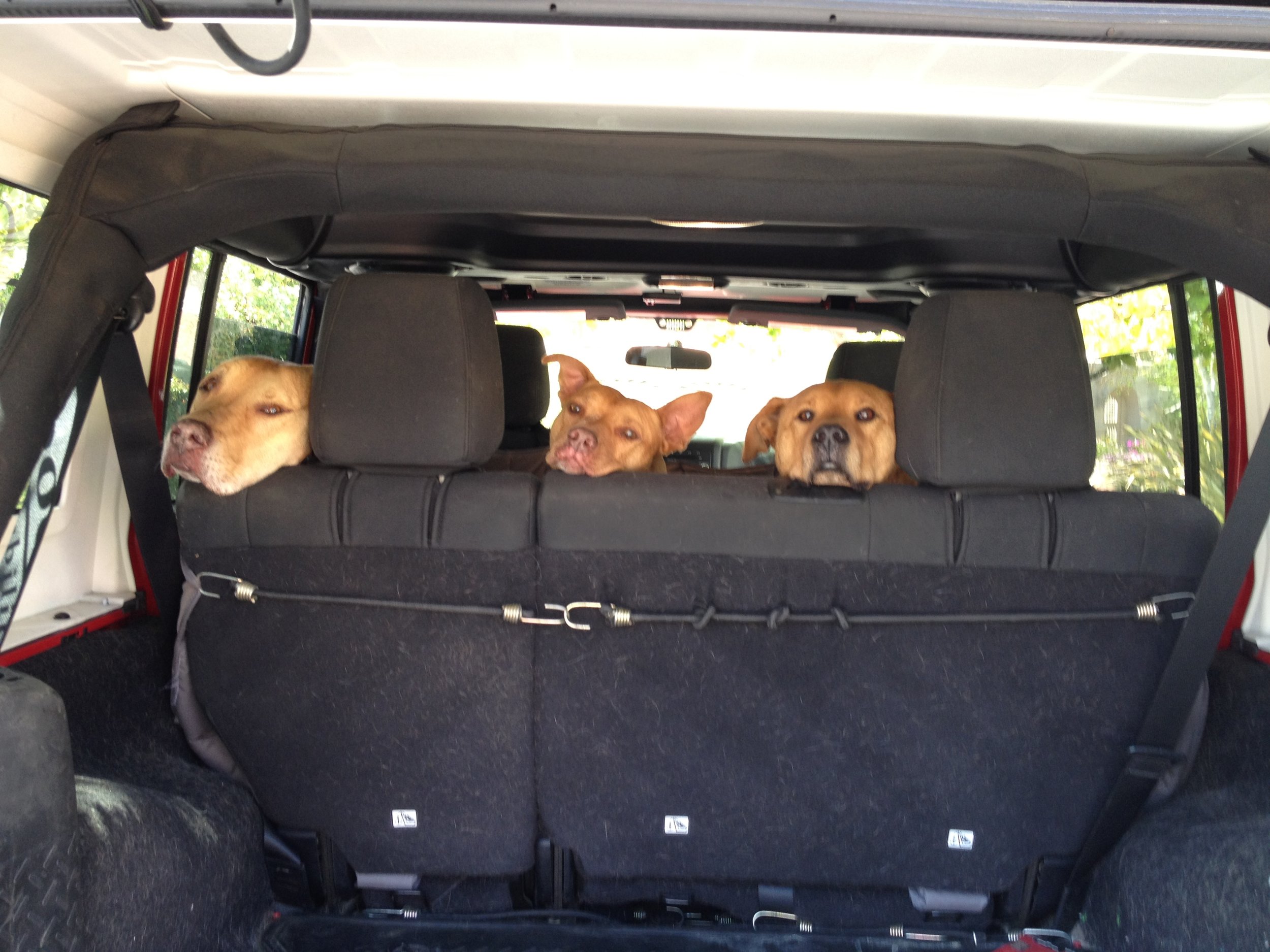 By Sean O'Shea from The Good Dog Training and Rehabilitation How much impact would 5 dollar speeding tickets have on drivers speeding habits?Probably not much.And why is that? Because the reward for driving over the speed limit - whether it's running late for an appointment, impatience, or just the thrill of some extra speed - outweighs the consequence. No one is going to change rewarding behavior for a 5 dollar penalty...why would they?When a reward outweighs a consequence, the consequence will be ignored. And the behavior that the consequence was supposed to impact/change/prevent/stop simply continues on.If speeding tickets were 5 dollars, folks would likely be driving like maniacs...it would be chaotic, it would be dangerous, and it would be unpredictable. (This is strangely similar to dogs we see who live in a world of few rules and insignificant consequences for negative behavior).So what changes a driver's speeding habits? What changes anyone's habits? It's simple really. Significant consequences for breaking known rules. When consequences become significant, behavior changes...for all of us. (That's why speeding tickets and the ding they put on your insurance are so heavy...in order for them to be significant)In working with dogs, I see the 5 dollar speeding ticket issued all too often by owners in an effort to stop or change unwanted behavior. And the fallout is: The dog's negative behavior continues; owners become frustrated/annoyed/resentful; the unwanted behavior becomes even more deeply patterned; and worst of all, the dog begins to view the human in a disrespectful, dismissive light...and this spells massive trouble.So knowing that insignificant consequences undermine what we're trying to achieve, and significant consequences help us to achieve what we want, what stands between us and the promised land of stopping bad behavior and creating great behavior? Lots of things. For one, many owners are far more prepared to share affection and fun than they are discipline and rules. For others they are unsure about how to create and share fair and appropriate consequences for their particular dog (and this is an important point - this is not a one size fits all - for some dogs a stern voice is significant, and for others this would mean absolutely nothing). Others still are unsure about which tool or approach or strategy would be best to help achieve this. Some owners are worried that they might hurt their dog's feelings or undermine their relationship. And maybe the biggest one of all, owners have been told over and over that correcting their dog will create aggression or other serious behavioral fallout. In all of the dogs I've worked with, I have never, repeat, never seen this be the case. But, there is an awful lot of propaganda saying otherwise.Once you've clearly and fairly taught your dog the rules of life, the next step is finding just the right consequence motivation that causes him to make good, healthy and safe choices. And in many cases, the best course of action is to hire an experienced, balanced trainer, who can help guide you through the best choice of strategies, tools, and reading of your dog, to ensure that you share exactly the right balance of reward and consequence for your particular dog...and that you leave that 5-dollar speeding ticket far behind.
By Sean O'Shea from The Good Dog Training and Rehabilitation How much impact would 5 dollar speeding tickets have on drivers speeding habits?Probably not much.And why is that? Because the reward for driving over the speed limit - whether it's running late for an appointment, impatience, or just the thrill of some extra speed - outweighs the consequence. No one is going to change rewarding behavior for a 5 dollar penalty...why would they?When a reward outweighs a consequence, the consequence will be ignored. And the behavior that the consequence was supposed to impact/change/prevent/stop simply continues on.If speeding tickets were 5 dollars, folks would likely be driving like maniacs...it would be chaotic, it would be dangerous, and it would be unpredictable. (This is strangely similar to dogs we see who live in a world of few rules and insignificant consequences for negative behavior).So what changes a driver's speeding habits? What changes anyone's habits? It's simple really. Significant consequences for breaking known rules. When consequences become significant, behavior changes...for all of us. (That's why speeding tickets and the ding they put on your insurance are so heavy...in order for them to be significant)In working with dogs, I see the 5 dollar speeding ticket issued all too often by owners in an effort to stop or change unwanted behavior. And the fallout is: The dog's negative behavior continues; owners become frustrated/annoyed/resentful; the unwanted behavior becomes even more deeply patterned; and worst of all, the dog begins to view the human in a disrespectful, dismissive light...and this spells massive trouble.So knowing that insignificant consequences undermine what we're trying to achieve, and significant consequences help us to achieve what we want, what stands between us and the promised land of stopping bad behavior and creating great behavior? Lots of things. For one, many owners are far more prepared to share affection and fun than they are discipline and rules. For others they are unsure about how to create and share fair and appropriate consequences for their particular dog (and this is an important point - this is not a one size fits all - for some dogs a stern voice is significant, and for others this would mean absolutely nothing). Others still are unsure about which tool or approach or strategy would be best to help achieve this. Some owners are worried that they might hurt their dog's feelings or undermine their relationship. And maybe the biggest one of all, owners have been told over and over that correcting their dog will create aggression or other serious behavioral fallout. In all of the dogs I've worked with, I have never, repeat, never seen this be the case. But, there is an awful lot of propaganda saying otherwise.Once you've clearly and fairly taught your dog the rules of life, the next step is finding just the right consequence motivation that causes him to make good, healthy and safe choices. And in many cases, the best course of action is to hire an experienced, balanced trainer, who can help guide you through the best choice of strategies, tools, and reading of your dog, to ensure that you share exactly the right balance of reward and consequence for your particular dog...and that you leave that 5-dollar speeding ticket far behind.
